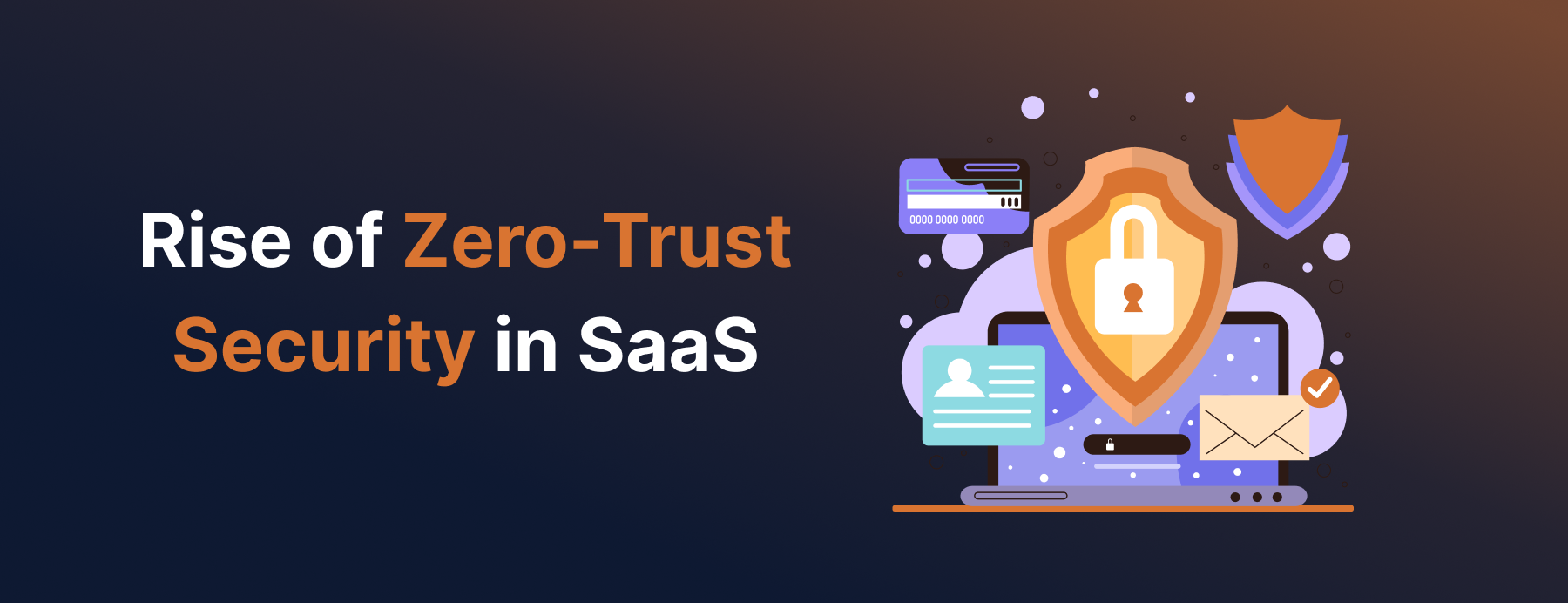
The Rise of Zero-Trust Security in SaaS
Ensuring Data Protection and Compliance in a Remote-First World
In today's digital age, where remote work has become the new norm, securing sensitive data and ensuring compliance with regulatory standards has never been more critical. The traditional security models, which often relied on perimeter defences and trusted networks, are proving insufficient in a landscape where users access data from various locations and devices. Enter zero-trust security—a paradigm shift that is revolutionising how businesses protect their information in a remote-first world.
What is Zero-Trust Security?
Zero-trust security operates on the fundamental principle of "never trust, always verify." Unlike traditional security models that assume everything inside the network is trustworthy, zero-trust requires continuous verification of every user and device attempting to access resources, regardless of their location. This approach minimises the risk of data breaches by ensuring that only authenticated and authorised users can access sensitive information.
The Role of SaaS in Zero-Trust Security
Software as a Service (SaaS) products are at the forefront of implementing zero-trust security models. With the increasing adoption of cloud-based solutions, SaaS providers are integrating advanced security measures to protect data and ensure compliance with stringent regulatory requirements. Here are some ways cutting-edge SaaS products are enhancing security and compliance:
1. Multi-Factor Authentication (MFA)
One of the cornerstones of zero-trust security is multi-factor authentication (MFA). SaaS products are incorporating MFA to add an extra layer of security, requiring users to provide multiple forms of verification before accessing sensitive data. This significantly reduces the risk of unauthorised access, even if login credentials are compromised.
2. Continuous Monitoring and Threat Detection
Modern SaaS solutions leverage AI and machine learning to continuously monitor user activities and detect anomalies in real-time. By analysing patterns and behaviours, these systems can identify potential threats and respond swiftly to mitigate risks. Continuous monitoring ensures that any suspicious activity is promptly flagged and addressed, maintaining the integrity of the network.
3. Secure Access Controls
SaaS products enable granular access controls, allowing businesses to define and enforce strict policies on who can access what data. Role-based access controls (RBAC) and attribute-based access controls (ABAC) ensure that users have access only to the information necessary for their role, minimising the potential for data exposure.
4. Data Encryption
To safeguard data from unauthorised access and breaches, leading SaaS providers implement robust encryption techniques. Data is encrypted both in transit and at rest, ensuring that sensitive information remains protected at all times. Encryption is a critical component of zero-trust security, providing an additional layer of defence against cyber threats.
5. Compliance Management
SaaS solutions are designed to help businesses comply with various regulatory standards such as GDPR, HIPAA, and SOC 2. These products offer built-in compliance management tools that streamline the process of meeting regulatory requirements. Automated compliance checks and audits ensure that businesses remain compliant, reducing the risk of legal penalties and reputational damage.
The Benefits of Zero-Trust Security in a Remote-First World
Adopting zero-trust security through SaaS products offers several benefits for businesses operating in a remote-first environment:
- Enhanced Security:Continuous verification and robust access controls significantly reduce the risk of data breaches and cyber-attacks.
- Improved Compliance:Automated compliance management tools ensure that businesses adhere to regulatory standards, mitigating the risk of non-compliance.
- Scalability:: SaaS solutions are scalable, allowing businesses to adapt their security measures as they grow and evolve.
- Flexibility:Zero-trust security supports remote work by providing secure access to data from any location, ensuring business continuity.
As the shift towards remote work continues, the importance of robust data protection and compliance cannot be overstated. Zero-trust security, powered by cutting-edge SaaS products, offers a comprehensive solution to the challenges of securing information in a remote-first world. By adopting a zero-trust approach, businesses can enhance their security posture, ensure compliance, and safeguard their most valuable asset—data. Embrace the future of security with zero-trust and stay ahead in an increasingly digital landscape.